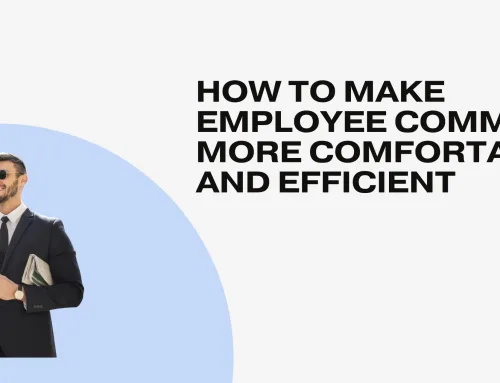Primer
In a more global world, the ability to attract and maintain international talent is crucial to economic growth and innovation. The United States responded by launching the International Entrepreneur Rules (Ier) in 2017. The rules allow international entrepreneurs to establish and develop their start-ups in the United States, helping to create jobs, drive technological innovation, and increase economic growth. Although the visa program is not a visa program, Ier provides a temporary home in the United States for qualified entrepreneurs to expand their companies and possibly build long-term opportunities for their and the US economy.
The following article discusses its impact on the global entrepreneurship society together with the original, intentions, qualifying standards, and effects of the international entrepreneurial rules.
What is the International Entrepreneur Rule?
The international entrepreneurial rule is a federal rule made by the US Department of Homeland Security (DHS) under the Obama administration. The rule was designed to address a void in the US immigration system, where there was no special visa category for foreign entrepreneurs. Although there are programs such as H -1b visas that benefit talented employees and EB -5 visas that benefit investors, there were no specific routes for start-up founders that did not come in these categories.
Ier qualified entrepreneurs originally American for a period of up to 2.5 years. Everything allows qualified entrepreneurs to come in or live, if they meet specific requirements, with the ability to increase their stay for 2.5 years. Regulation is not a visa, but an act of probation, which allows individuals to live in the United States for temporarily sufficient public benefits.
Eligibility Criteria for the International Entrepreneur Rule
To be eligible for the IER, applicants have to fulfill certain requirements that will show their capability to contribute to the U.S. economy. These requirements are:
Ownership and Role in the Startup
The entrepreneur should be the owner of at least 10% of the startup and should have a key and active role in its operation. This will ensure that the person is heavily invested in the success of the company.
Substantial Investment or Government Grant
The startup should have received either:
At least $250,000 in eligible investment from U.S. investors who have a history of successful investments, or
At least $100,000 in grants or awards from federal, state, or local governments.
Potential for Rapid Job Growth and Hiring:
The business founder must also prove that the startup has rapid potential for hiring and job creation. This would be supported through the startup business model, marketplace opportunity, or some other attractive element.
Such parameters are tailored so that solely entrepreneurs with significant potential to enrich the U.S. economy should receive parole status under the IER.
Benefits of the International Entrepreneur Rule
The IER has several advantages for foreign entrepreneurs and the U.S. economy:
Attracting Global Talent:
The regulation places the U.S. as a hospitable country for innovative global entrepreneurs. By creating an opportunity for these people to start and develop their companies, the U.S. can draw from a wide pool of talent and ideas.
Employment Creation:
Start-up can be an important source of employment generation. U.S. By offering foreign entrepreneurs, providing the opportunity to establish their businesses, Ier can increase US employment generation.
Economic development:
Successful start-ups provide the opportunity for economic development by operating innovation, productivity, and industrial production. Ire ensures that the United States continues to lead the world when it comes to innovation.
Flexibility for entrepreneurs:
Unlike old visa programs, Ire is quite flexible so that entrepreneurs are allowed to focus on expanding their businesses without the limits of strict visa categories.
International entrepreneurial challenges and criticism
Notwithstanding its possibilities, the IER has come under challenges and criticism since its introduction:
Limited Awareness: Most entrepreneurs and even immigration experts are not familiar with the IER, resulting in underutilization of the program.
Uncertainty and Political Climate: The IER was originally postponed and almost repealed during the Trump administration, which led to uncertainty regarding its sustainability. Although the Biden administration has restated its backing of the rule, shifts in political leadership may affect its stability.
Temporary Duration: The IER offers a short-term stay only in the United States and no direct route for permanent residency. This constraint may discourage some businesspeople from attempting the program.
Stringent Eligibility Criteria: The threshold levels for eligible investment or government money may prove demanding for startups with little progress under their belt to fulfill, closing out opportunities for talented entrepreneurs without deep pockets.
The IER is an improvement in understanding the value
More Awareness: Its promotion among investors, entrepreneurs and immigration agents is necessary for it to gain acceptance on a broader scale.
Stability in Policies: Regular approval from policymakers and governments will serve to offer stability for entrepreneurs to feel free to pursue the program.
Potential Expansion: Widening the IER to provide a route to permanent residence would increase competition for foreign-born entrepreneurs and maximize its impact.
Global Competition: When the world’s nations implement or expand their entrepreneurial visa programs, the US Ier must be sophisticated and marketed to compete to secure world talent.
The international entrepreneurial rule is a progressive policy that recognizes foreign entrepreneurs who contribute significantly to innovation and economic development. By offering a temporary passage for these people to install the start-up in the United States, Ier can potentially generate jobs, motivate innovation, and strengthen the economy. However, the success will be random with increasing awareness, policy stability, and continuous efforts to remove the deficiencies.
As the world competition for talent grows, the IER is a reminder of the need to welcome and support foreign entrepreneurs’ different ways of thinking and ideas. Through this, the U.S. can remain a leader in innovation and entrepreneurship on the global front.










